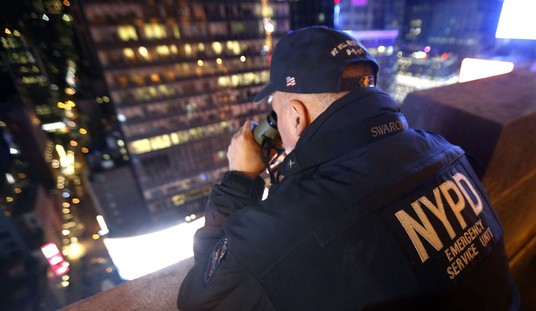
For people of my generation who went into film as writers, directors or practically anything else, no movie was of deeper import, of greater inspiration, than Lawrence of Arabia (1962). Before that was Fellini’s La Dolce Vita (1960) and simultaneously Truffaut’s Jules and Jim (1962) and then later The Godfather (1972) and Chinatown (1974), but an argument can be made that Lawrence was the greatest of all.
Nothing of recent vintage approaches any of these. Cinema is in decline for a variety of reasons. And now Peter O’Toole, the last of the trio with director David Lean and writer Robert Bolt — make that quartet with cinematographer Freddie Young — who made that masterpiece, has died. (A fifth party, Omar Sharif, who played the charismatic Sharif Ali, is still with us.) Yet Lawrence remains as evocative as ever. Why?
The film has remarkable resonance, since it was based (rather loosely) on the book by T. E. Lawrence, which had, as its core subject, the West’s relationship with what, until Edward Said wagged his angry finger, was called the Orient. We are living through the continuing conundrum of that relationship more than ever now and will be, we can assume, for years to come. So moments in Lawrence could not seem more contemporary, as when Lawrence, via Bolt, Lean and O’Toole, says:
Sherif Ali! So long as the Arabs fight tribe against tribe, so long will they be a little people, a silly people. Greedy, barbarous and cruel, as you are.
Tribe against tribe? Where have we heard all that before? Back in 1962, who among us knew about Sunni versus Shiite (or the Howitat and the others, for that matter)? In 2013, who among us doesn’t?
Well, a lot of low-information voters, but I’ll wager not too many of them are fans of Lawrence of Arabia or even know what it is. But there is a more important message in Lawrence that resonates across the ages. It is the leitmotif about “what is written,” what is preordained by God or Allah. Lawrence, for me, is a movie about free will with a tragic twist. Brave as Lawrence is, at the end, and foreshadowed in the beginning, he dies by driving too fast on a motorcycle.
Of course, he was the one who decided to drive too fast. And throughout the film the question of free will is played with. As Sharif Ali tells Lawrence, when he seems to have come back from the dead after trudging for days without water across the Sahara:
Truly, for some men nothing is written unless THEY write it.
Words for all of us, I suppose, although hard to live by. Nevertheless, they are particularly pertinent now. Lawrence of Arabia is a movie that seems a little bit different every time I see it, due to the changes in the world that have occurred. It is always great, but is great in different ways, the sign of a timeless work of art. At this point in history, we are in an era when the individual must act, exercise free will. Move forward to our own personal Aqabas. Or, as it goes in the movie:
Prince Feisal: Gasim’s time has come, Lawrence. It is written.
T.E. Lawrence: Nothing is written.
Sherif Ali: You will not be at Aqaba, English! Go back, blasphemer… but you will not be at Aqaba!
T.E. Lawrence: I shall be at Aqaba. That, IS written.
[pointing to forehead]
T.E. Lawrence: In here.
So I take my inspiration from Lawrence of Arabia. I could do worse. As for the astonishingly handsome Peter O’Toole, he was clearly one of the greatest actors of the modern era. He had many fine roles (The Stunt Man), but none so great as T. E. Lawrence, a character with whom he will be identified as long as celluloid is projected.
Roger L. Simon, PJ Media co-founder, is an Academy Award-nominated screenwriter. He is writing about this years’ Oscar contenders at City Journal.









Join the conversation as a VIP Member